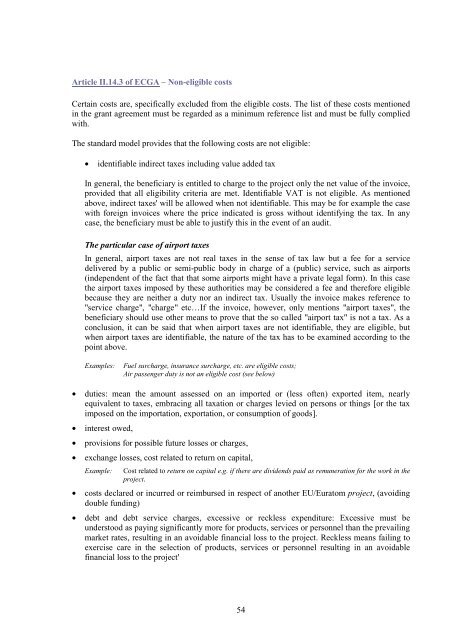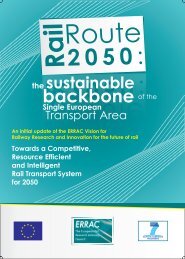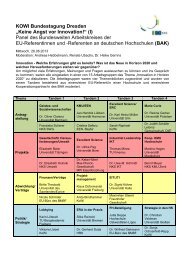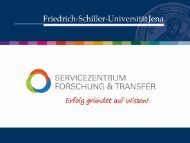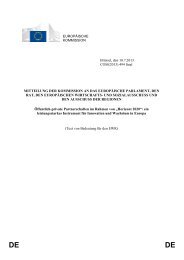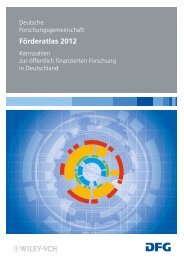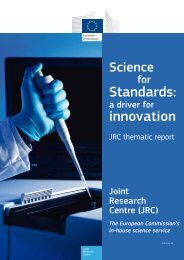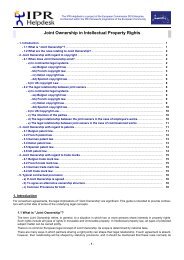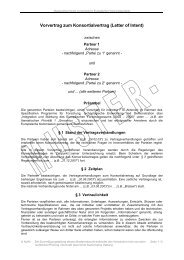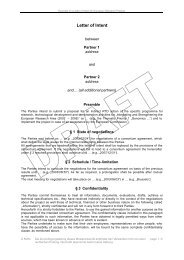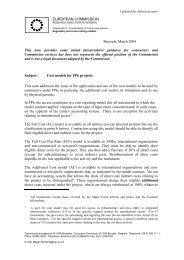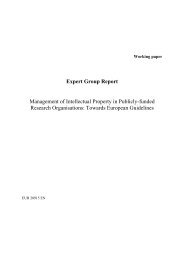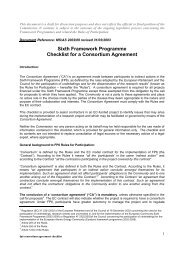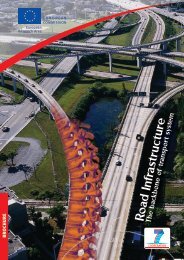Guide to Financial Issues relating to FP7 Indirect Actions - KoWi
Guide to Financial Issues relating to FP7 Indirect Actions - KoWi
Guide to Financial Issues relating to FP7 Indirect Actions - KoWi
You also want an ePaper? Increase the reach of your titles
YUMPU automatically turns print PDFs into web optimized ePapers that Google loves.
Article II.14.3 of ECGA – Non-eligible costs<br />
Certain costs are, specifically excluded from the eligible costs. The list of these costs mentioned<br />
in the grant agreement must be regarded as a minimum reference list and must be fully complied<br />
with.<br />
The standard model provides that the following costs are not eligible:<br />
• identifiable indirect taxes including value added tax<br />
In general, the beneficiary is entitled <strong>to</strong> charge <strong>to</strong> the project only the net value of the invoice,<br />
provided that all eligibility criteria are met. Identifiable VAT is not eligible. As mentioned<br />
above, indirect taxes' will be allowed when not identifiable. This may be for example the case<br />
with foreign invoices where the price indicated is gross without identifying the tax. In any<br />
case, the beneficiary must be able <strong>to</strong> justify this in the event of an audit.<br />
The particular case of airport taxes<br />
In general, airport taxes are not real taxes in the sense of tax law but a fee for a service<br />
delivered by a public or semi-public body in charge of a (public) service, such as airports<br />
(independent of the fact that that some airports might have a private legal form). In this case<br />
the airport taxes imposed by these authorities may be considered a fee and therefore eligible<br />
because they are neither a duty nor an indirect tax. Usually the invoice makes reference <strong>to</strong><br />
"service charge", "charge" etc…If the invoice, however, only mentions "airport taxes", the<br />
beneficiary should use other means <strong>to</strong> prove that the so called "airport tax" is not a tax. As a<br />
conclusion, it can be said that when airport taxes are not identifiable, they are eligible, but<br />
when airport taxes are identifiable, the nature of the tax has <strong>to</strong> be examined according <strong>to</strong> the<br />
point above.<br />
Examples:<br />
Fuel surcharge, insurance surcharge, etc. are eligible costs;<br />
Air passenger duty is not an eligible cost (see below)<br />
• duties: mean the amount assessed on an imported or (less often) exported item, nearly<br />
equivalent <strong>to</strong> taxes, embracing all taxation or charges levied on persons or things [or the tax<br />
imposed on the importation, exportation, or consumption of goods].<br />
• interest owed,<br />
• provisions for possible future losses or charges,<br />
• exchange losses, cost related <strong>to</strong> return on capital,<br />
Example:<br />
Cost related <strong>to</strong> return on capital e.g. if there are dividends paid as remuneration for the work in the<br />
project.<br />
• costs declared or incurred or reimbursed in respect of another EU/Eura<strong>to</strong>m project, (avoiding<br />
double funding)<br />
• debt and debt service charges, excessive or reckless expenditure: Excessive must be<br />
unders<strong>to</strong>od as paying significantly more for products, services or personnel than the prevailing<br />
market rates, resulting in an avoidable financial loss <strong>to</strong> the project. Reckless means failing <strong>to</strong><br />
exercise care in the selection of products, services or personnel resulting in an avoidable<br />
financial loss <strong>to</strong> the project'<br />
54


